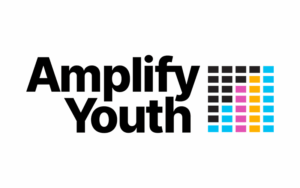My teen daughter is a frequent Instagram user. I recently discovered that she has two accounts, one of which she calls her Finstagram and says she only allows her closest friends to follow her. While I understand it’s important for teens to be able to share things with their close friends, I’m concerned that her separate account isn’t really as private as she thinks. How can I help her to stay safe?
– Photo Mom
Dear Photo,
One of the key developmental tasks of adolescence, as your daughter moves from childhood to adulthood, is to establish autonomy – to find her identity apart from her parents and to connect with her peers as an individual. Her Finstagram account is one way in which she is trying out her independence from you and preferentially bonding with peers, a normal and desirable behavior as a teen.
However, when this behavior occurs online, there are other factors to consider, such as privacy, safety, and digital citizenship. Also, teens haven’t yet fully developed executive functions such as impulse control and future thinking. In her youthful exuberance, your daughter may post images or words on social media that can compromise her present reputation and her future opportunities. Though the account may be private, once information or images are posted online, we lose control of them. Even private accounts can be screenshotted and shared widely. I encourage kids to observe what I call the “Grandma Rule”: Only post what you would be okay with your grandmother seeing.
Adults and teens understand the concept of privacy differently. Because of the normal autonomy-seeking of adolescence, many teens define privacy as “what my parents shouldn’t see,” while parents, whose executive function is more developed, understand privacy as protecting one’s identity and preserving one’s reputation.
When you speak with your daughter about her Finstagram and social media sharing in general, you can bridge the communication divide between your definitions of privacy by focusing on your concerns about her well-being and her future.
When your daughter argues that her grandparent doesn’t have access to her Finsta account, you can say, “You’re right… but your friends can see your content and so can anyone they share with (and anyone they share with and on and on).” Imagine with her who else could have access to her photos, how she would feel if they saw them, and how it might make them feel to see those posts. Remind her that, depending on who they are and what they seek to learn about her, different people interpret images differently, especially when posted online without context.
Rather than demanding access to her Finstagram account (which may make her feel you want to spy on her), offer your support and advice. Acknowledge that you have much to learn about social media and the role it plays in her life. Ask to sit beside her and learn how to navigate social media, allowing you to impart observations about human nature, good and bad, and how others might receive and respond to what is posted. Show her your desire to support and protect her, to be present for her, and to guide her to be mindful and masterful online, just as you are there for her in other aspects of her life.








